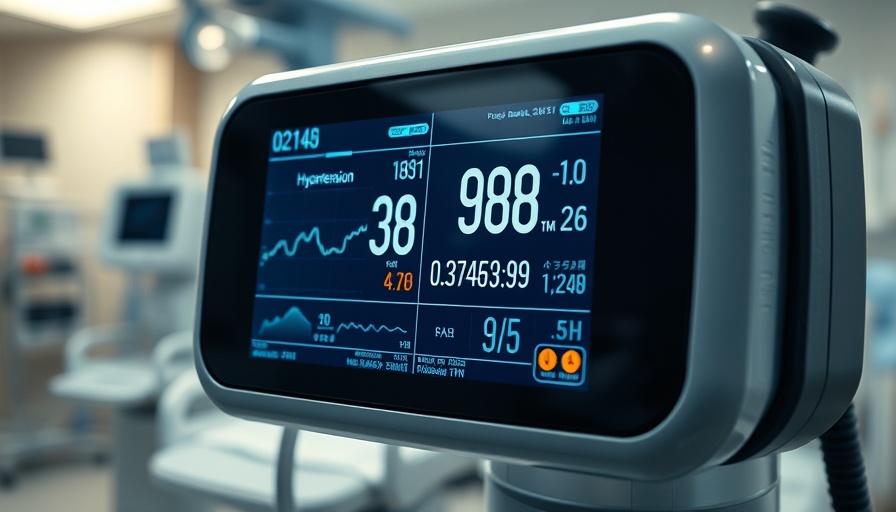
Revolutionizing Hypertension Detection in the Digital Age
Recent advancements in healthcare technology are paving the way for significant improvements in diagnosing hidden health issues. A pivotal study conducted at Mass General Brigham reveals how automated searches of electronic health records (EHR) have vastly improved the identification of hypertension—often dubbed the 'silent killer.' With almost half of those suffering from hypertension unaware of their condition, the implications of this research are profound.
The Hidden Dangers of Hypertension
Hypertension can lead to severe health complications if left untreated, including heart disease and stroke. Unfortunately, many individuals do not exhibit symptoms, making regular monitoring crucial. Yet, traditional healthcare methods often fall short in identifying at-risk patients adequately. The study's emphasis on using natural language processing (NLP) suggests that AI technologies can unearth critical patient data that may otherwise remain hidden. By analyzing echocardiograms, researchers pinpointed individuals with left ventricular hypertrophy— a condition often linked to chronic hypertension.
How the Study Unfolded
The clinical trial involved 648 patients, averaging 59 years of age, all lacking prior knowledge regarding their heart health status. The innovative approach harnessed natural language processing to sift through EHRs, identifying candidates who required immediate attention due to heart muscle thickening. Researchers compared two groups: one receiving routine care and another flagged for intervention based on automated findings.
Transformative Results from Automated Interventions
The results were striking: patients identified through the new intervention were almost four times more likely to receive a hypertension diagnosis than those in the control group. The statistics were significant, with 15.6% of the intervention group diagnosed compared to just 4.0% in standard care. Furthermore, treatment adherence soared, with 16.3% of patients receiving antihypertensive medication compared to 5.0% in the control group. These outcomes underscore a crucial shift in how we can utilize technology in healthcare to improve patient outcomes significantly.
Implications for Healthcare Practices
This advancement highlights the potential benefits of integrating AI into routine healthcare practices. According to Dr. Jason H. Wasfy, the study's senior author, many patients suffer silently due to the lack of proactive screening for hypertension. By digitally notifying physicians of critical findings like left ventricular hypertrophy, the research demonstrates how targeted outreach can lead to timely diagnoses—ultimately enhancing patient health and reducing long-term healthcare costs.
Counterarguments and Diverse Perspectives
While the outcomes of this research are optimistic, some healthcare providers may raise concerns about the reliance on automated systems in placing diagnoses. Questions about data privacy, error margins in algorithmic predictions, and the potential for overdiagnosis may surface. However, as the healthcare landscape evolves, the challenge will be striking a balance between automated efficiencies and personalized care.
Bridging Technology and Patient Care
The integration of AI in healthcare represents a larger trend towards data-driven decision-making. For CEOs and marketing managers in tech-enabled industries, the implications are clear: innovations that prioritize patient care will stand as cornerstones of competitive advantage in the healthcare sector. Moreover, as healthcare continues to move toward technology-centric models, professionals in other sectors can glean insights for their own industries regarding integration and user experience.
A Call to Action for Industry Leaders
The findings from the recent trial advocate for a proactive approach towards patient care. Understanding how to leverage technology can empower professionals to refine experiences not just in healthcare but across sectors, encouraging a culture that prioritizes wellness and prevention. Businesses should consider investing in similar automated solutions or collaborations with tech firms to enhance their service offerings.
As the research clearly shows, the future of healthcare may depend on our ability to harness technology for early intervention and prevention—ensuring we transform potential hidden dangers into manageable solutions.
 Add Row
Add Row  Add
Add 




 Add Row
Add Row  Add
Add 

Write A Comment